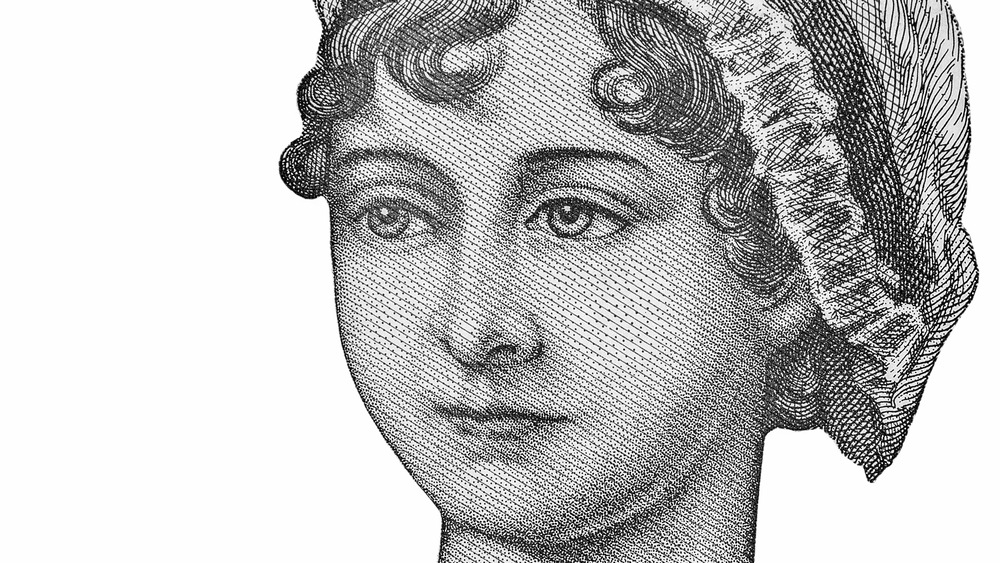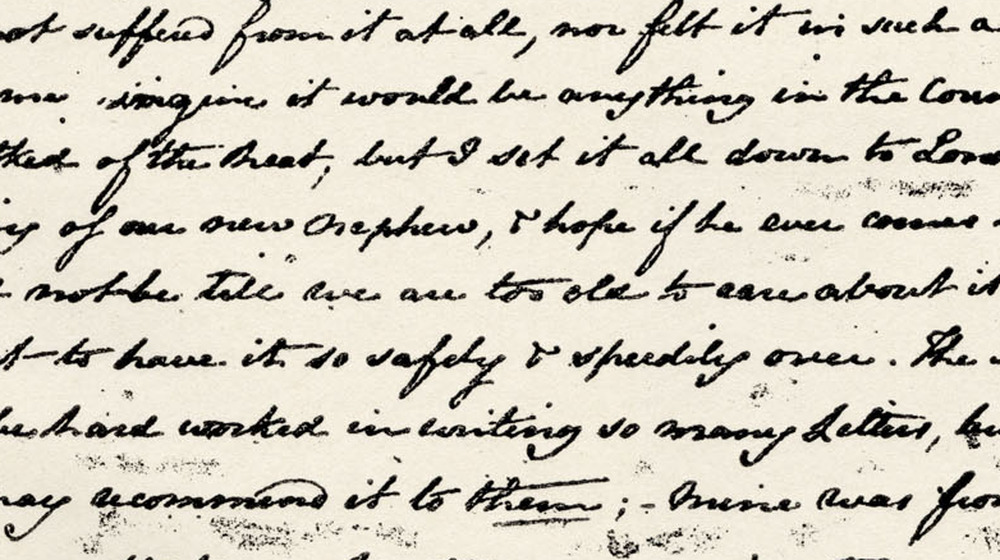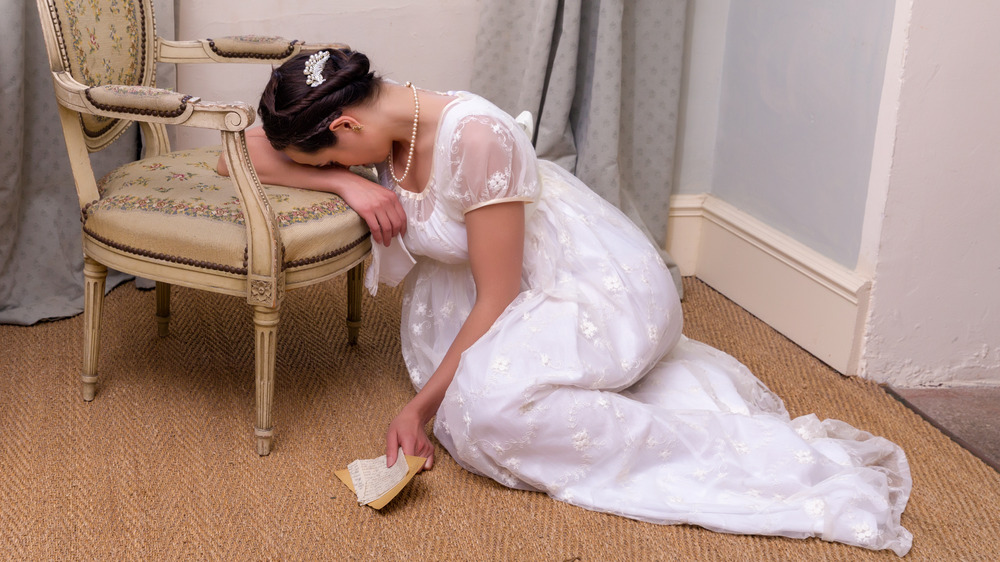Why Jane Austen's Sister Burned Nearly All Of Her Letters
Whether it's Mansfield Park, Sense and Sensibility, or perennial fave Pride and Prejudice, much of Jane Austen's work centers on sisters; their bonds, their rivalries, their jealousies, and their love. Her inspiration isn't hard to find. Jane was one of eight children and was especially close to her older — and notably, only — sister, Cassandra.
On a fan page dedicated to the author called, fittingly, Pemberley (real Jane-heads know), Cassandra is described as Jane's "closest confidante." In fact, it's the extensive correspondence between the two women that offers scholars and fans the most detailed information about Jane Austen's life.
The site notes that more than 100 letters Jane wrote to Cassandra "have survived." But in a pre-internet, pre-phone world, that doesn't seem like that much, right? Yeah, about that. Cassandra ended up living much longer than her younger sister, who died at only 41. As Cassandra got older, she began to worry about her younger sister's legacy, eventually taking matters into her own hands by burning much of their correspondence.
Jane Austen's true legacy may never be known
If you're like most lovers of classic lit, you probably have an image in your mind of Austen as a genteel, upper-crust, but fundamentally polite English woman. And it's not like that's untrue — it's just that there was a darker and more sardonic side to the beloved author.
Sometimes the uninitiated will go into an Austen novel assuming the descriptions of posh courtship rituals and fancy balls are written by someone who holds those aspects of her life in high regard. In reality, Austen was often spoofing (or at least, knowingly winking at) the customs and etiquette of those in her social caste.
Austen was also an incredibly private person. According to Literary Hub, Austen made the choice to only publish her works anonymously during her lifetime, never letting outsiders in on her secret, even when they were espousing opinions about her work. Still, even secrets have their expiration date, which is why it's surprising to many that Cassandra waited decades to destroy the correspondence.
So what happened in those intervening years between her sister's death and Cassandra's own? Jane became much more famous. In the eyes of polite society, though, her shrewd (often unflattering) portrayal of its insular mores was not necessarily something to brag about. Add to this that many characters may have drawn obvious inspiration from family members and acquaintances, and it only makes sense that Cassandra would have wanted to shield her sister's legacy from any conflicts that might have arisen.
Why Cassandra Austen burned her sister's letters
The Houston Chronicle quotes Caroline, a niece of Jane's, as describing Jane's writing style to her sister as too "open and confidential." Sounds like a bit of an oxymoron, but read between the lines and it seems as though Caroline is essentially saying that Jane was too public with things that should have stayed quiet.
We'll never know for certain, of course, the exact reasons Cassandra hid her sister's personal writing from us, though it's believed, per the Houston Chronicle, that some 160 letters remain, including the first, from 1796, in which Jane recounts a dance she'd attended the night before. She wrote to Cassandra that "I am almost afraid to tell you how my Irish friend and I behaved. Imagine to yourself everything most profligate and shocking in the way of dancing and sitting down together." It may seem tame now, but in Regency England, that's as good as a drunk selfie at the club.
So while we may only ever know the contours of Jane's personal life, the tiny glimpse we get is more than enough to paint a picture of a sharp and fun-loving young woman. Maybe Cassandra just decided that it's best to keep the reader wanting more.


